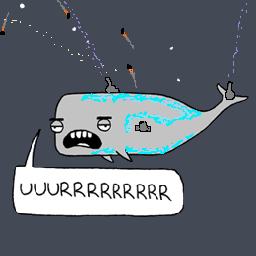I assume many of you host a DMS such as Paperless and use it to organise the dead trees you still receive in the snail mail for some reason in the year of the lord 2023.
How do you encode your scans? JPEG is pretty meh for text even at better quantisation levels (“dirty” artefacts everywhere) and PNGs are quite large. More modern formats don’t go into a PDF, which means multiple pages aren’t possible (at least not in Paperless).
Discussion on GH: https://github.com/paperless-ngx/paperless-ngx/discussions/3756


I use JPEGs in a PDF. They can be mediocre quality. Using an OK scanner makes a big difference. It’s good enough!
I’m required by law to keep physical paper copies for 35 years. So my parallel solution is a cursed filing cabinet, and several crates that describe the content of the filing cabinet. Its ugly, but saves me tons on data archiving, I guess?
Paperless has a tracking method for paper copies as well; i think the idea is you assign an archive number, then file it in the expected place (for example, 2023-01 to 2023-500 would be one of the 500 docs you get a year, then you put it in the filing cabinet in order from 1 to 500 under 2023). Then you can still search for document by name tag correspondent etc. in paperless and find the archive number.
WDYM? The lossless scans SANE produces themselves subjectively look very good. My only issue is the transcoding to lossy formats I want to do in order to save >3/4 of the space.
Oh, it’s common in my country to use a smartphone to ‘scan’ documents by actually just taking a lousy photo of them. It’s so prevalent that when you tell someone to do a scan they usually do this instead.
I bought a cheap canon scanner for 50$ and it’s pretty perfect for legal documents. A little slow maybe. I use SANE, then do lossy compression too.
In rare situations I’d then post process the PDF to even worse quality using ghostscript, for example when a foreign visa application form requires a scan of a really long document, but doesn’t accept sizes over 2MB.
@Saigonauticon @Atemu A scanner is a camera. Why complicate things?
Well, what kind of lossy compression? JPEG?
IME, JPEG looks quite terrible for text documents -even at q=95.
@Atemu
I just use grayscale PNGs, myself. optipng usually takes them down to a decent size.
@Saigonauticon
Hmm, I’m using grayscale PNGs as my baseline here. A 150dpi scan is about 1.3MiB.
A (for the purpose of text documents) similar quality WEBP is about 1/4 of that.
You could also try adjusting the contrast a bit. I use an app called Genius Scan, which increases the contrast of the scanned image to reduce the number of bits needed per pixel. This reduces the size of the file quite a bit, although it obviously isn’t a true representation of the scanned document. The TextCleaner imagemagick plugin looks like it’s doing something similar.
@Atemu
Webp is much better, as long as your target reader(s) support it.
Yes, as I said.
As also mentioned in the post, I need a solution for multiple pages and an image (no matter what format) only represents a single page and WEBPs don’t go into PDFs.
@Atemu
There’s not really a magic bullet here. The current answer is to prepare a PDF outside of paperless and feed it in: https://github.com/paperless-ngx/paperless-ngx/discussions/367
mpflanzer on that Issue is working on a file merging feature, but it’s not ready yet.
Yeah just jpeg. Always comes out perfectly legible.